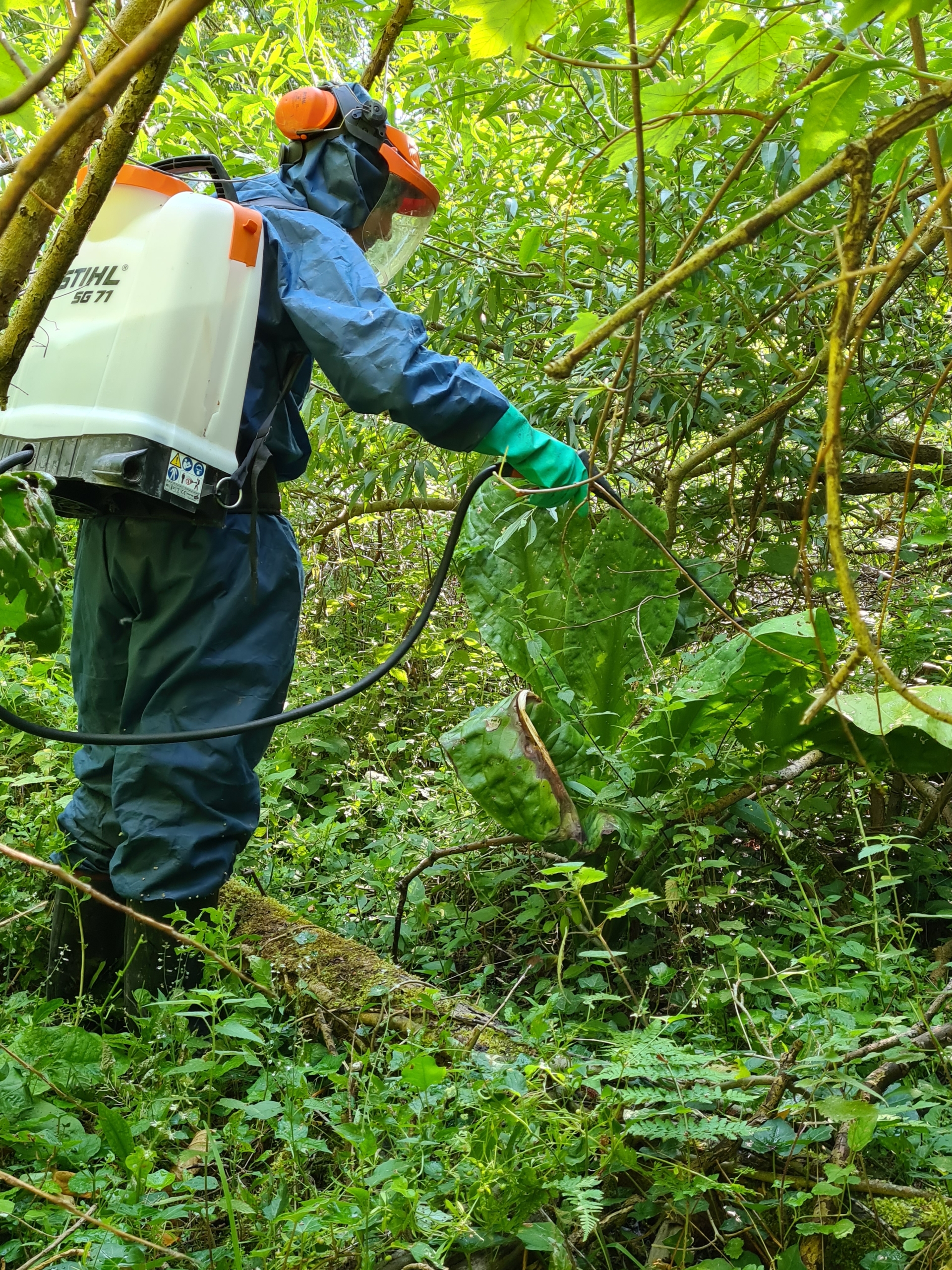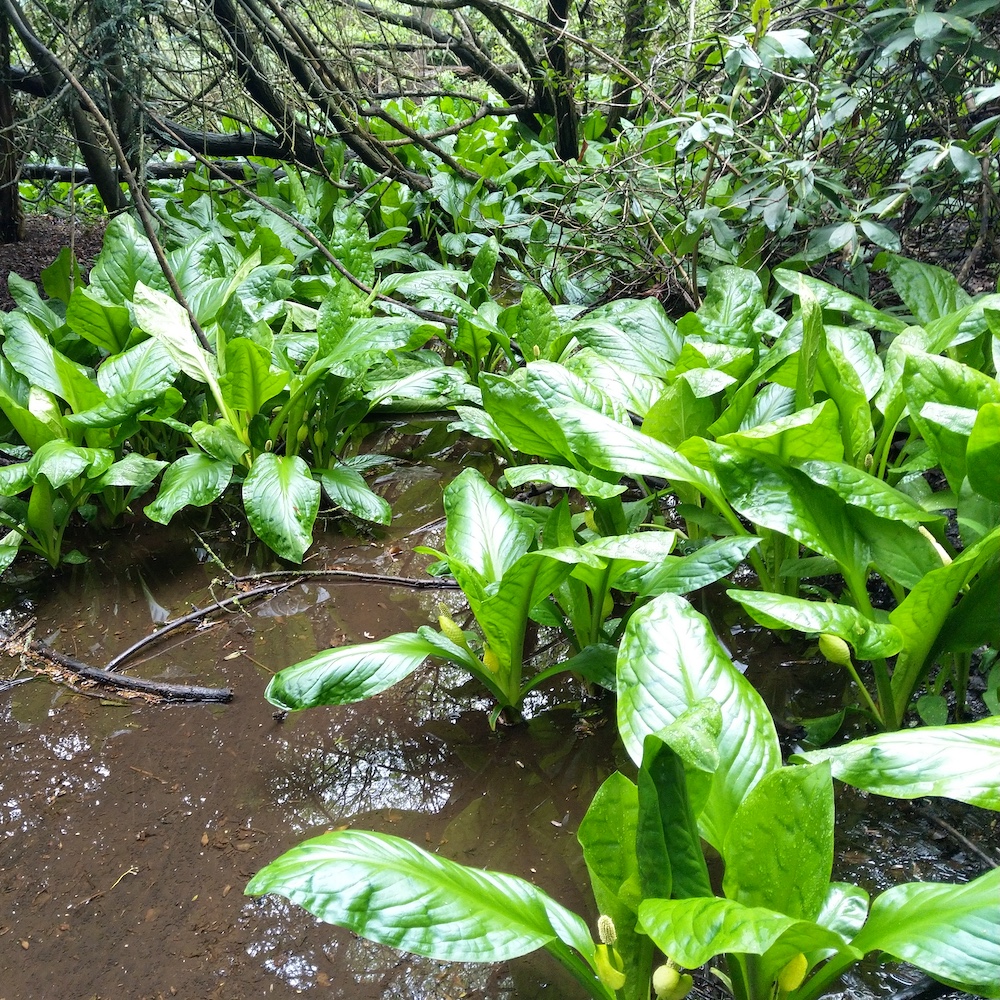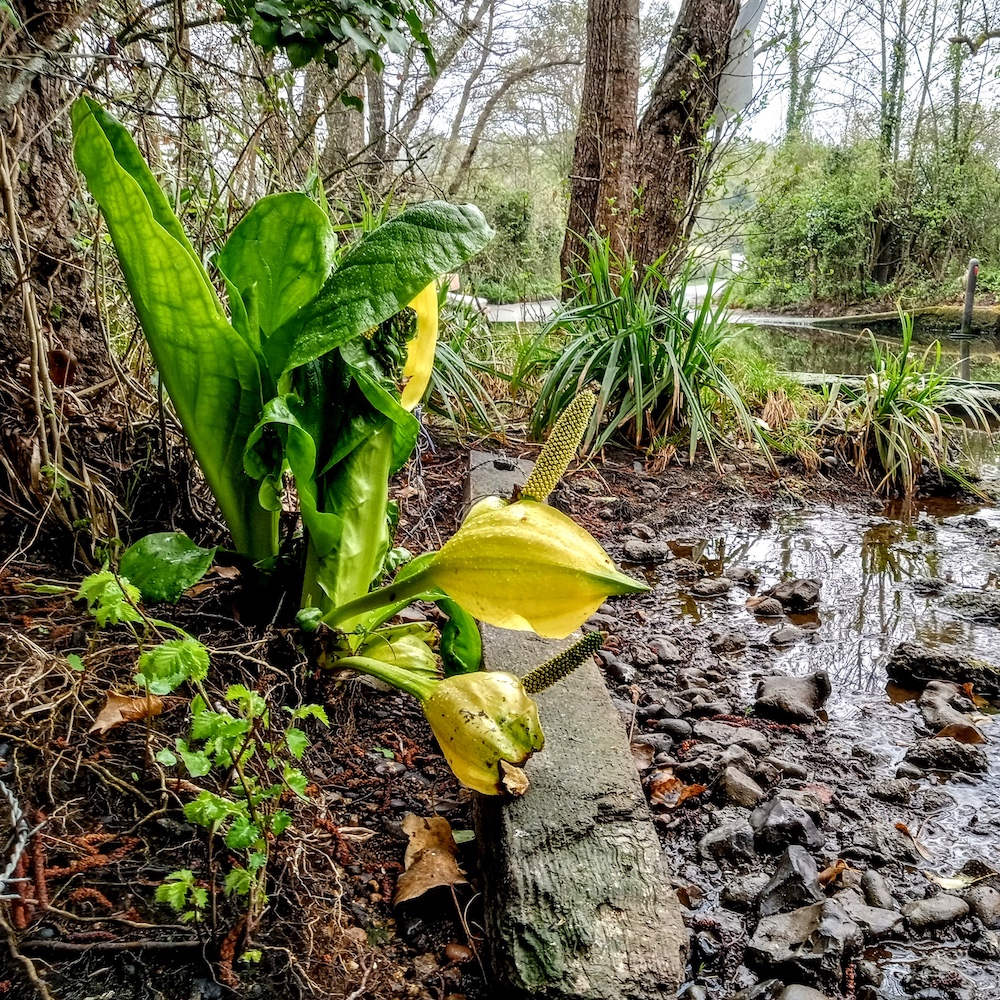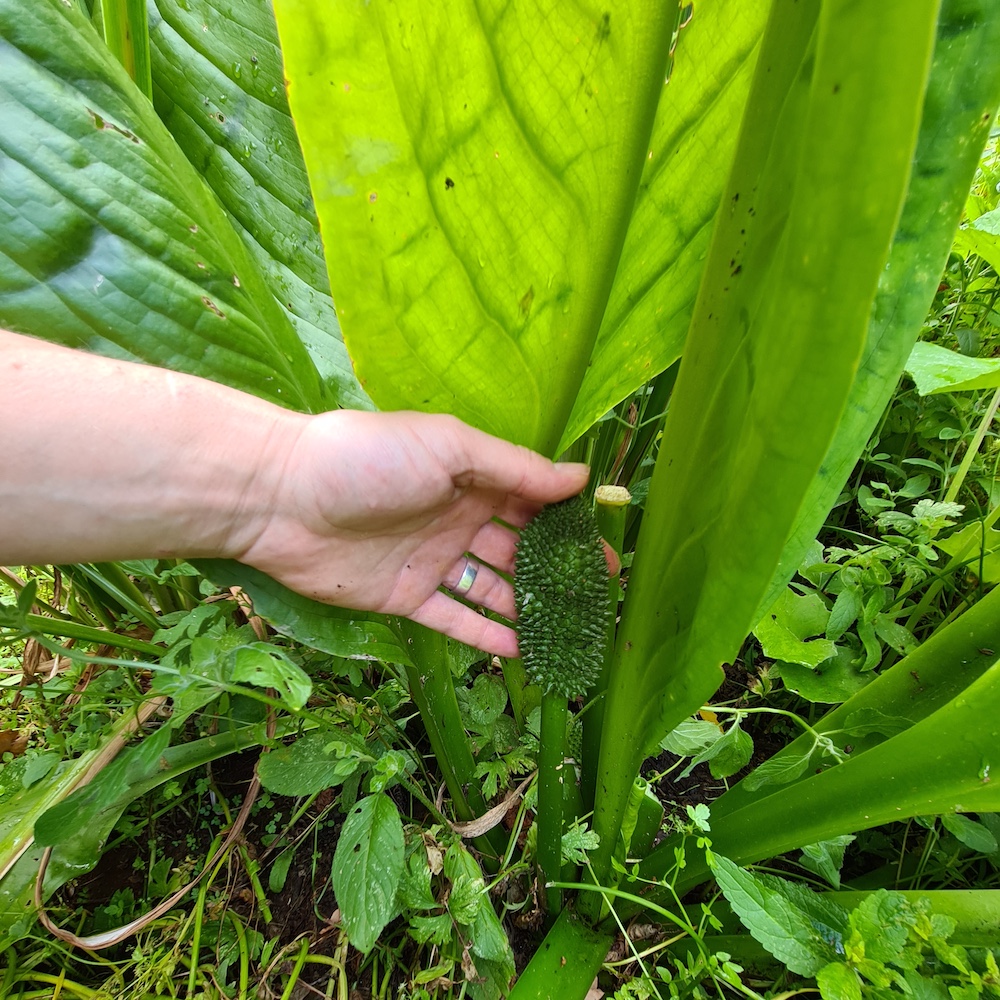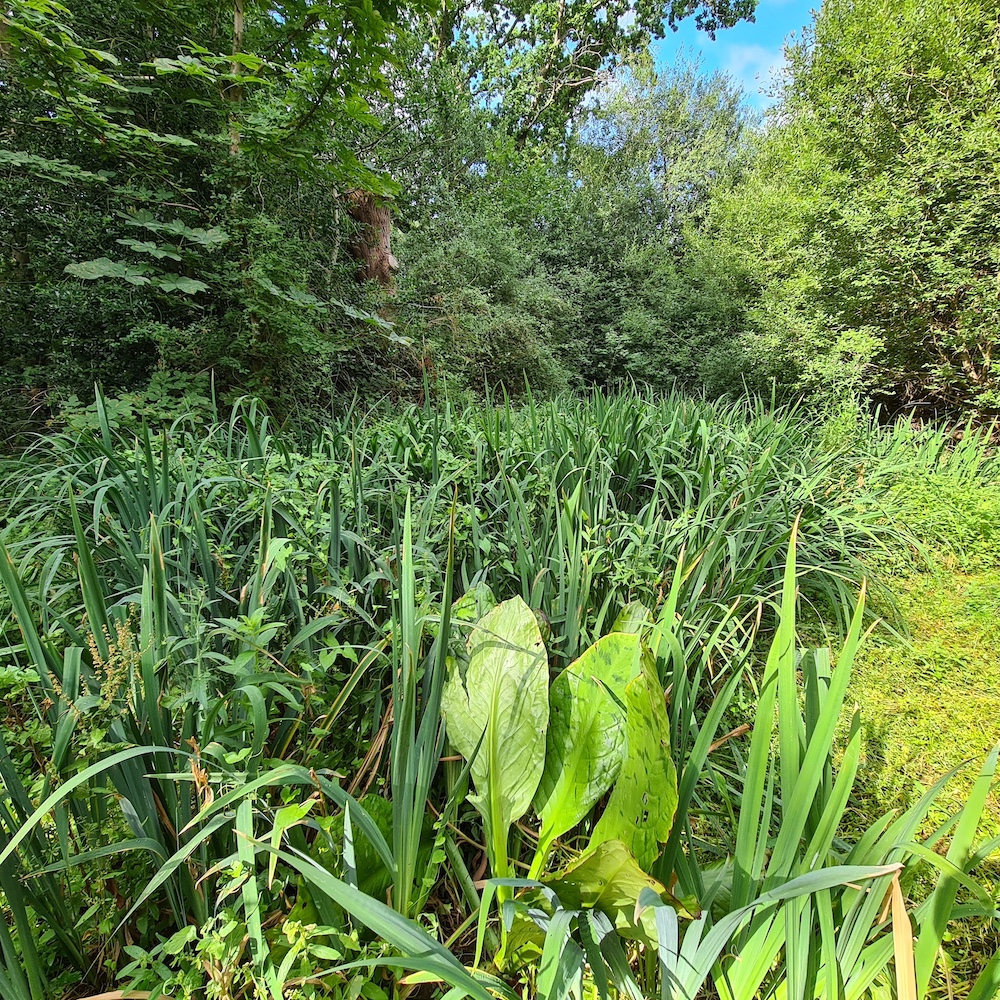American Skunk Cabbage (Lysichiton americanus) is an Invasive Non-Native Species (INNS) “of Special Concern” with large leathery leaves up to 1.5 m across, and bright yellow flower spikes. Skunk Cabbage, now banned in the UK, was widely planted as an ornamental plant around ponds and in bog gardens and these are still the primary sources of spread into the wild, with colonies dispersing seeds via nearby waterways.
Like most INNS, Skunk Cabbage causes damage by out-competing native species – in this case plants on riverbanks and in marshy areas, leading to loss of biodiversity and bank erosion – so we are proud to announce that we have now started work to eradicate the species locally before it becomes so widespread that removal is impractical. Unfortunately, due to Skunk Cabbage’s extensive root system and habit of growing amongst tree roots / in weakened river banks, herbicide treatment is the only practical way of eliminating it when established – yet another reason to tackle INNS as soon as they are located.
With this year’s work funded by Affinity Water with a contribution from the NEP Biodiversity Group, and working with the UK Environment Agency, we have started treatment at the Harding’s Row Nature Reserve in Iver Heath and on the River Alderbourne where Skunk Cabbage has spread over three miles from a single source, joining other notable riverside Invasive Himalayan Balsam at the Kingcup Meadow SSSI. Funding permitting, return visits will be made over the next seven years to ensure any seedlings emerging are removed – by digging where possible, at which point we will have achieved the rare feat of locally eradicating a problematic Invasive Non Native Species.
Specialist contractor spot treating Skunk Cabbage
Established Skunk Cabbage at Harding’s Row
Skunk Cabbage in flower
Skunk Cabbage seeds starting to ripen
Native plants with Skunk Cabbage starting to encroach
